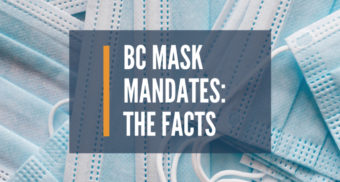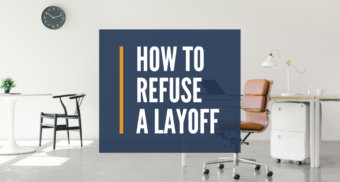Employment lawyer on returning to work during and after COVID-19 – Canadian Press

As provinces begin the slow process of reopening their economies and people start returning to the workplace, questions abound about the rights and responsibilities of employees and employers in the aftermath of COVID-19.
The Canadian Press asked Lior Samfiru, an employment lawyer and co-founding partner at Samfiru Tumarkin LLP, to answer a number of questions about employment law and the return to work during the coronavirus pandemic.
This article was published by numerous media organizations, including Canadian Lawyer, CityNews, CP24, CTV News, Global News, National Post/Postmedia, and the Toronto Star.
What can employees reasonably expect of their employers when it’s time to return to the workplace?
“An employer must follow each and every single requirement that’s imposed by the government and by health authorities that may be industry specific,” Samfiru said.
For instance, in Manitoba, retail stores have been allowed to reopen at half-occupancy, as have restaurant patios. In Ontario, retail locations with a street entrance will be allowed to open for curbside pickup this week.
Samfiru added that those guidelines may change over time, and “it is up to the employer to stay up to date.”
If an employee feels that their employer isn’t doing enough to protect them from the virus, what can they do?
“There is a legal process that an employee can engage in if the work is unsafe. It’s called a work refusal, which may also require the company to call in an inspector from the Ministry of Labour, who can then determine whether in fact the work is safe or not,” Samfiru said.
He said those inspectors will have their work cut out for them, because they’ve been trained to make sure equipment is working properly and safety measures are in place. Evaluating the spread of a virus is untrodden territory.
Does an employee have to tell their employer if they’ve had COVID-19?
A staffer doesn’t have to tell their boss if they were diagnosed and then cleared of the virus before returning to work, Samfiru said. But if the person may have recently been exposed to COVID-19, they have a duty to report it to their employer.
“If you’re in a situation where you could conceivably be putting others at risk and you know about that, you must tell your employer,” he said. “You must allow them to understand how to deal with you and then whether they need to exclude you from the from work or maybe require other employees to self-isolate or even shut down the business completely.”
He added that if an employee knowingly puts their coworkers at risk without informing them, they could be personally liable.
The decision of whether to disclose is one of common sense, he added.
“If you know someone that had the virus and now you’re not feeling well, reasonably you would expect that there’s a problem,” he said. “If you’ve been self-isolated at home for the last two months, and now you have a cold, you probably are not going to think that there’s a real risk there.”




